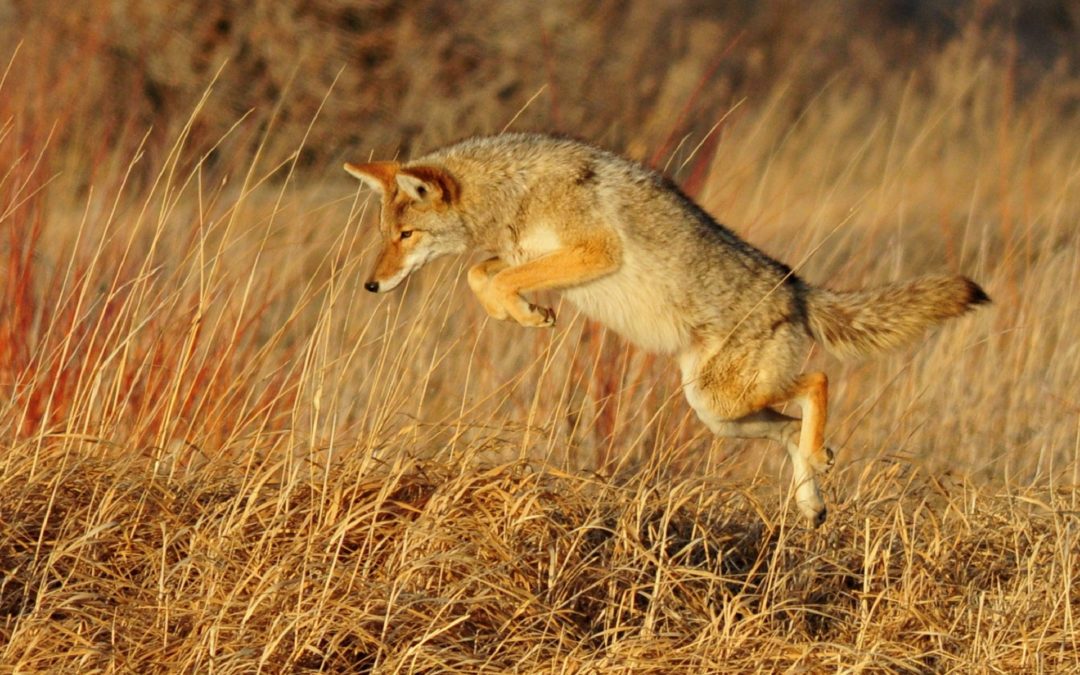Predators play a necessary and important role in the health of an ecosystem. By keeping large and small mammal populations in check, they help prevent species from outgrowing their food source and spreading disease.
Unfortunately, humans and carnivorous animals sometimes have conflicting interests. This is why San Juan Wildlife is here. We want to help alleviate your wildlife issues, while also serving nature’s balance.
Know Your Predators
Here in the Four Corners, dealing with predators can be a part of daily life. Native wildlife, such as coyotes, foxes, and bobcats can pose a threat to pets and small livestock (calves, sheep and goats, poultry) any time of year.
Predation by these animals typically increases in the spring and summer as they raise their young. This corresponds to when young calves, sheep and other livestock are on pasture, making them vulnerable for attack.
That said, winter is quickly approaching and with it comes an increase in food scarcity for the Four Corner’s larger predators. While typical prey animals hibernate, coyotes, bobcats, and foxes may focus more of their attention on pets and small livestock.
Coyotes can become particularly dangerous when they hunt in packs. This behavior tends to occur in colder months or while families are feeding their young.
Predator Prevention
It is possible to keep these predators off your property. According to Article XVIII of the Colorado Constitution, “agriculture producers have the right to control depredating animals, meaning animals that pose a threat to an agricultural product or resource.” This may be done by the landowners themselves or by a designee, such as a hunter or wildlife control operator.
In order to protect private property, the Colorado Department of Agriculture states that, “Badger, muskrat, beaver, red fox, bobcat, skunk, coyote, raccoon, prairie dog, pocket gopher, rock squirrel, Richardson’s and thirteen-lined ground squirrel, jackrabbit, marmot, porcupine, black-billed magpie, common crow, rattlesnakes, common pigeons, and starling may be taken year-round as
necessary.”
Control methods may include humane hunting or live trapping. When dealing with any wildlife issue, however, it is best to consult Colorado Parks and Wildlife before taking action, to ensure you are following the proper regulations.
There are other possible management methods as well:
– Controlling small mammal populations, such as rodents or rabbits to discourage the presense of larger predators
– Closing off crawl spaces around your home
– Reinforcing your chicken coop
– Installing an electric fence or a wildlife fence that animals cannot jump over or dig under
The above methods are helpful, but not always fool proof. Coyotes and foxes are especially sly and can be quite persistent. If you find yourself going toe to toe with a pesky predator who will not give up, do not hesitate to call your local wildlife removal professional.
For Your Safety
Preventative management should never require you to approach these animals. It is important to remember they are wild and may respond with aggression. Predators can also carry diseases such as rabies, which is dangerous to humans.
If you are dealing with aggressive or persistent wildlife around your home, it is best to call a seasoned wildlife professional.
The team at San Juan Wildlife is equipped to remove and relocate your nuisance predator. Most importantly, we will do so in a way that is safe, humane and effective.
For more information regarding predator control, follow the link to an article by the Colorado Department of Agriculture.

